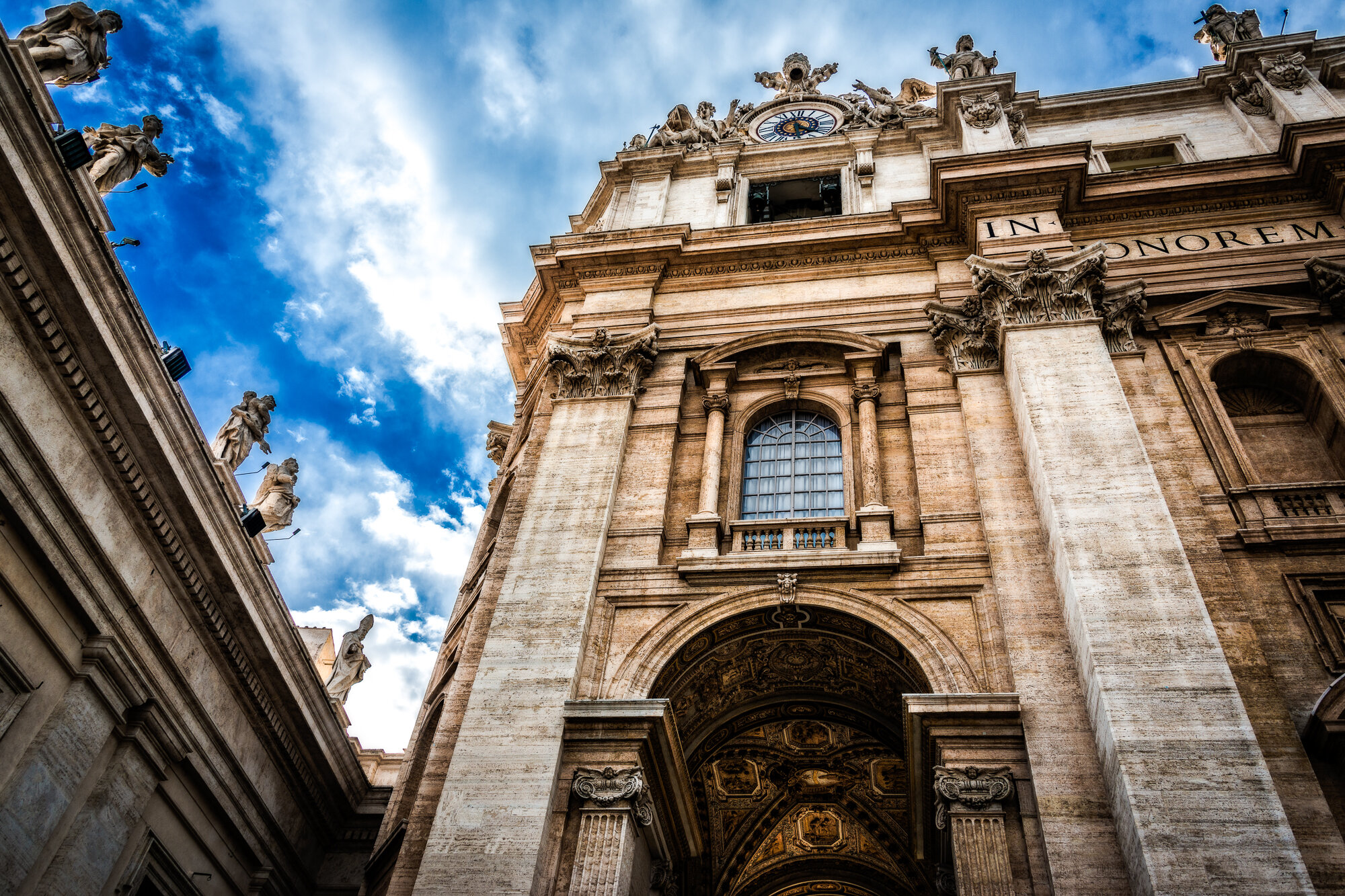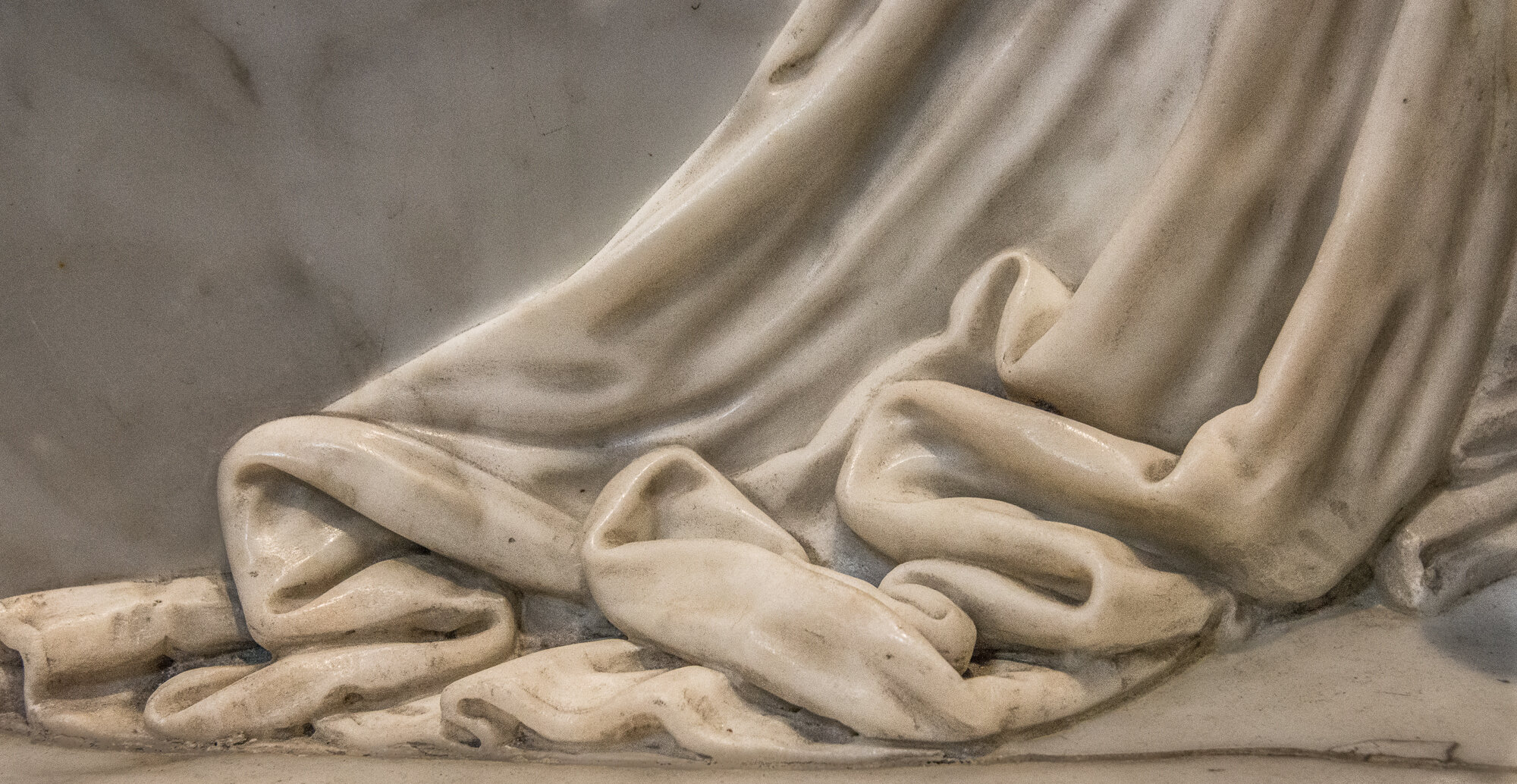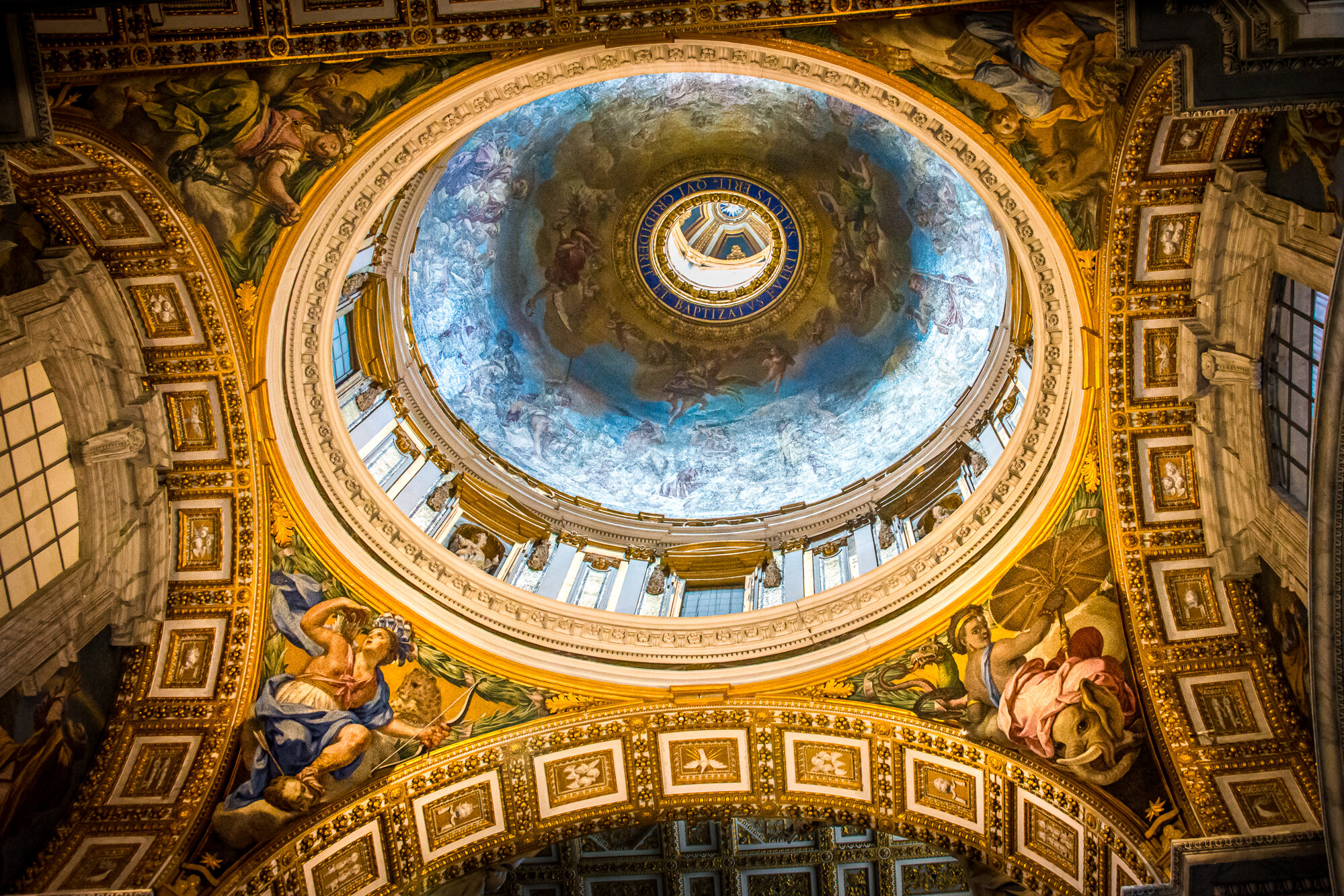In last week’s exciting and informative article (well, I hope you read it, at least), we learned a bit about the Vatican City in general, and St Peter’s Basilica in particular.
Today, you get your ticket to the Vatican Museums.
The Vatican Museums
In this image, you can see the Vatican Museums, almost in their entirety. The art museum is to the left of that small dome in the distance, while the Sistine Chapel is under the roof at the extreme bottom right of the photo. In between those two are the vast Vatican Museums. What do you need to come away with in looking at this photo? The Vatican Museums are huge! There are three floors and two, long galleries that are a quarter-of-a-mile each…that’s about a mile-and-a-half of walking! So, don’t try to see it all…I’ll tell you below how to best view the tens-of-thousands of artifacts.
The Vatican Museums — from Wikipedia
To see where the Vatican Museums fit within the whole of Vatican City, see the map included in last week’s article, here.
How to See the Museum’s Sights
I’ll cut to the chase and give you the answer on how to visit the Vatican Museum and St Peter’s Basilica: hire a guide.
On our first visit to the Vatican Museums in 2000, due to time constraints and not knowing about the whole guide thingie, we got off an overnight train to Rome, stored our luggage at the station, taxied to the Vatican Museum entrance, lined up two hours ahead of opening time (we were 8th in line), and then we raced non-stop to the Sistine Chapel all the way down at the end of the museum. The Sistine Chapel is all we saw (and we were happy with that). Next up was a very long walk back to the museum entrance, then around the Vatican City to Vatican Square and the entrance of St Peter’s. Phew! That was a lot of walking. The next time we went, because we set aside more time for our visit, we used a guide and had a much more leisurely and enjoyable time…including the use of the special door from the Sistine Chapel to St Peter’s. So, that’s the secret…hire a guide.
With a licensed guide, you can skip the line into the Vatican Museums, which we’ve seen snaking around for blocks on end, because on average, 20,000 people visit the Vatican Museums every day. With a licensed guide, you get priority access to the museums, at a time of your choosing. And of course, an added benefit is that you will have someone with you that knows what’s what, and where the secret doors are located.
How Long Does it Take?
A very long gallery filled with marble heads…and bodies, too
How much time do you want to spend exploring the Vatican Museum? Weeks? There’s plenty to see and a week wouldn’t be unreasonable. There are over 70,000 items and 54 galleries. However, I imagine your eyes would glaze over before even one day was over. A day? My feet hurt just thinking about it. How serious are you about spending a whole lot of time looking at marble heads, like those in this photo? I didn’t think so.
Do you like paintings? They got ‘em. Tapestries? Ditto. Marble heads? Well, you know they have those, right? Frescos? Un-huh. Collections? They abound…like hundreds of meteorites collected in Antarctica by Vatican scientist…go figure.
So, how do you narrow down all of this to fit your interest? Use your guides’ knowledge. And, how do you fit all of this into your Rome explorations, including your important visit to St Peter’s Basilica? Tell your guide how much time you have available so they can tailor your visit to fit it into your day’s itinerary. Finally, tell your guide ahead of time exactly what time you would like to start your explorations.
Finding Your Guide
So, where do you find these guides? You Google for them. Here are a few recent findings…but before you look at these offerings, be sure to look carefully at what they offer. For instance, is it just a timed, special entrance to the museums, and then you are on your own? Do they parla Inglese? Will they also be taking you on to St Peter’s Basilica? You get the picture, right?
ToursByLocals - plug ‘Vatican Museums’ into their ‘Search by Keyword’ bar and then choose a guide
etc.
Rick Steves - And then there’s Rick Steves’ suggestions…and his suggestions are based on his personal experiences. As he points out, there is a big difference with getting a guide from an international company like those above, and getting a private guide who works independently. So, give Rick Steves’ recommendations a look…and hope that he keeps that list up to date.
A Few Museum Photos
Even the staircases have art at the Vatican Museums!
Expect a lot of variety in the paintings of the museums.
There is even a very large, and very old, tapestry modeled on DaVinci’s ‘Last Supper’.
I think that this next one is a lot of fun. These little winged putti seem to be having a bit of fun as they march along a wall in the museum. That poor guy second-from-left is missing his face, or is that a pillowcase over his head. What’s that about? But, not to worry, his friends are guiding him, and there’s an extra face laying (or is it lying?) on the floor to the right.
This next one is really cool! Look at the sculptural relief…or is that a painting? Can’t be a painting, can it? Yep, it is, and it is an excellent representation of Trompe-l'œil. What’s that you ask? It’s an art technique that uses realistic imagery to create the optical illusion of three dimensionality. In other words, those shadows are very carefully calculated to create a three-dimension look.
Here’s a modern interpretation of Trompe-l'œil. It’s just chalk art on a concrete walkway, but it’s the perspective that makes it work. Looking from any other angle just won’t reveal the ‘look’.
And, let’s not forget painted ceilings. Not sure what that elevated scene is about, but she seems to be in complete control of the situation. You go, girl!
The Sistine Chapel
Speaking of painted ceilings, now to the penultimate…the Sistine Chapel. Michelangelo didn’t really want to take on this project, as he was working on a marble tomb at the time…and he considered himself a sculptor, not a painter. But, we can be glad he acquiesced and took on the job for Pope Julius.
And, we can also be glad that the ceiling underwent a complete restoration at the end of the last century…before that, it was covered with the soot of five centuries of candle use.
First, here is what you would have seen if you had been there in around…let’s say 1970. It was a rather mono-chromatic, obliterated, mess.
From Wikipedia
Now, let’s see the difference that 20 years of restoration makes.
It’s an astounding change, isn’t it? Wow! And here is a bit of detail as we see the God-Man attempt at connection.
OK, here’s the deal. They ask that you take no photos. They also tell you to be quiet…and not in a very nice way. You hear a loud ‘SHHHH!!!’ intermixed with ‘No Photos!’ whilst you gawk at the amazing ceiling.
The fact that they keep shushing the crowd is indicative that no one pays much attention. Treat the request for ‘no photos’ the same way. Go ahead and shoot away. Just don’t use flash. I think the whole ‘no photo’ thingie has to do with selling the books with photos in the gift shop. And, as we haven’t been in the Sistine Chapel for 8 years, they may have completely given up on the ‘no photos’ thing with the advent of cellphone photography.
That’s it for the Vatican sights that we are allowed to see…the Vatican Museums and St Peter’s Basilica. If you have not already seen these amazing sights, I hope that you are able to do so whenever we can begin to travel once more.
Ciao for now…and please stay safe,
Steve
Subscribe here so you don’t miss the next issue of articles concerning Italy















